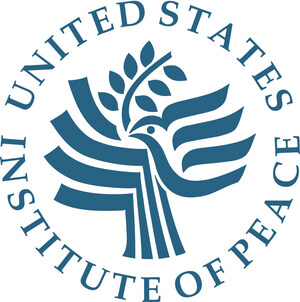"We need a new national security strategy to prevent the spread of extremism," Chairs of 9/11 Commission Warn in New Report
First report of the congressionally mandated Task Force on Extremism in Fragile States warns that extremist groups have evolved and grown in the last 17 years, while America's rivals exploit this instability to grow stronger
WASHINGTON, Sept. 11, 2018 /PRNewswire/ -- Today, Rep. Lee Hamilton and Gov. Thomas Kean, co-chairs of the 9/11 Commission, lead a bipartisan group of senior national security experts to release the first report of the Task Force on Extremism in Fragile States, convened by the United States Institute of Peace. The report warns that the United States needs a new national security strategy to prevent the spread of extremism in fragile states.
Entitled "Beyond the Homeland: Protecting America from Extremism in Fragile States," the report is the first to be issued by the congressionally mandated, bipartisan Task Force on Extremism in Fragile States, which was convened in April 2018 with the aim to address the 9/11 Commission's unfulfilled call for the United States to adopt a preventive strategy to reduce the spread of extremism.
"Fourteen years ago, as the chairs of the 9/11 Commission, Representative Hamilton and I argued that the U.S. could defeat terrorism by attacking terrorists and their organizations, protecting against and preparing for terrorist attacks, and preventing the continued growth of extremism," said Governor Tom Kean, co-chair of the Task Force. "Since then, the United States has had much success in attacking terrorists and protecting the homeland, but we have not been able to prevent the spread of violent extremism across the globe."
The report details how extremism is fueling growing instability and security threats to the United States in fragile states, and how America's rivals are exploiting this disorder to grow their power and influence.
"The world order has changed in the 17 years since 9/11," said Representative Lee Hamilton. "The nature of terrorism has evolved—extremist groups are taking advantage of fragility in the Middle East, Sahel and Horn of Africa to establish new governments built on intolerance, exclusion and hate that spur violence and civil conflict within and across borders. Other global and regional powers—Russia, China, Iran—have fueled this instability, which poses a new threat to U.S. interests at home and abroad. We cannot effectively thwart these competitors without quashing extremism."
The report, which is respectfully released on the 17th anniversary of the 9/11 attacks, warns that the continued growth of extremism in fragile states—countries where governments lack legitimacy and institutions struggle or fail to provide basic public goods and services—threatens the United States' ability to counter strategic competitors and national security more broadly at home and abroad.
A comprehensive preventive strategy, the report concludes, should target both the conditions and the actors that fuel violent extremism, focusing on alleviating real and perceived injustice; fostering political inclusion; curbing the spread and appeal of extremist ideology; and containing the spread of extremist groups. The Task Force will release a detailed strategic plan in early 2019 and make the case for its adoption by Congress and the administration.
The bipartisan Task Force is hosted by the United States Institute of Peace, led by former Representative Lee Hamilton and former New Jersey Governor Thomas, and includes 13 other members, including former leading policymakers, legislators and other key issue-area experts.
Read the full report.
SOURCE United States Institute of Peace
Related Links
WANT YOUR COMPANY'S NEWS FEATURED ON PRNEWSWIRE.COM?
Newsrooms &
Influencers
Digital Media
Outlets
Journalists
Opted In



Share this article